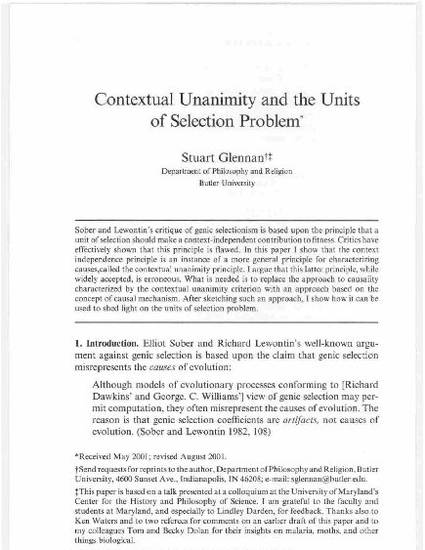
Sober and Lewontin’s critique of genic selectionism is based upon the principle that a unit of selection should make a context‐independent contribution to fitness. Critics have effectively shown that this principle is flawed. In this paper I show that the context independence principle is an instance of a more general principle for characterizing causes,called the contextual unanimity principle. I argue that this latter principle, while widely accepted, is erroneous. What is needed is to replace the approach to causality characterized by the contextual unanimity criterion with an approach based on the concept of causal mechanism. After sketching such an approach, I show how it can be used to shed light on the units of selection problem.
This article was archived with permission from University of Chicago Press, all rights reserved. Document also available from Philosophy of Science.
Available at: http://works.bepress.com/stuart_glennan/34/
